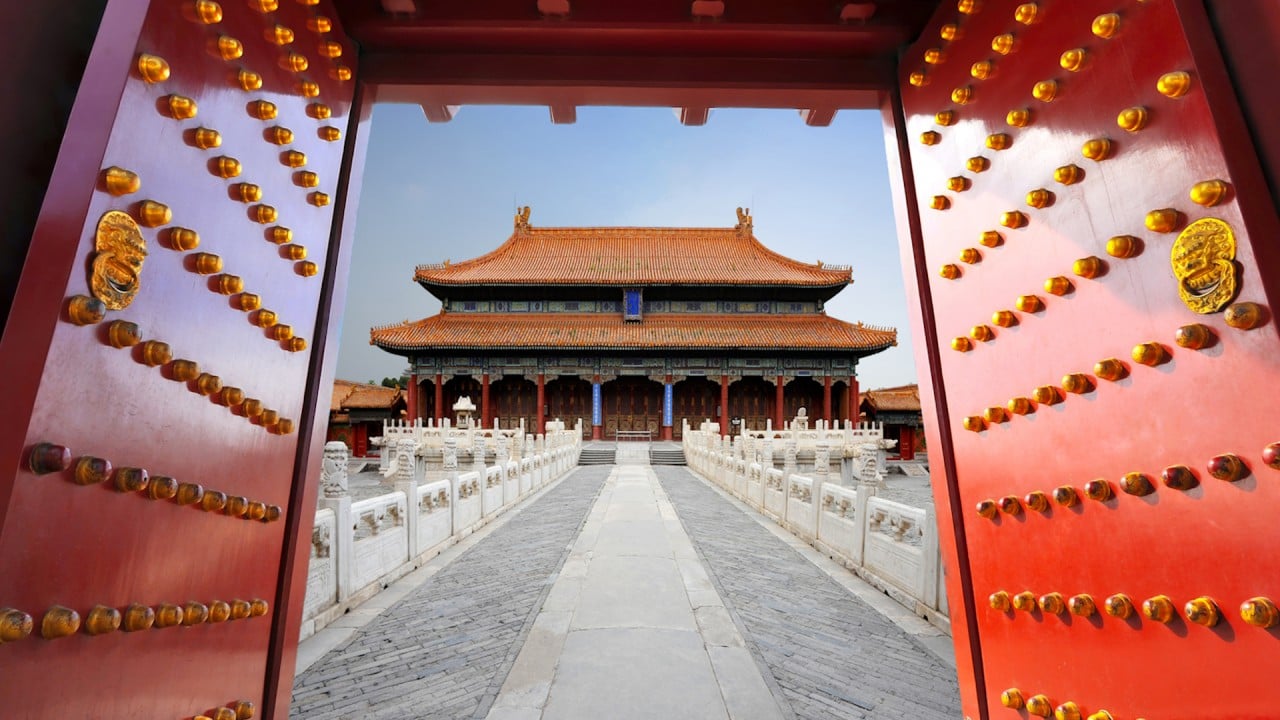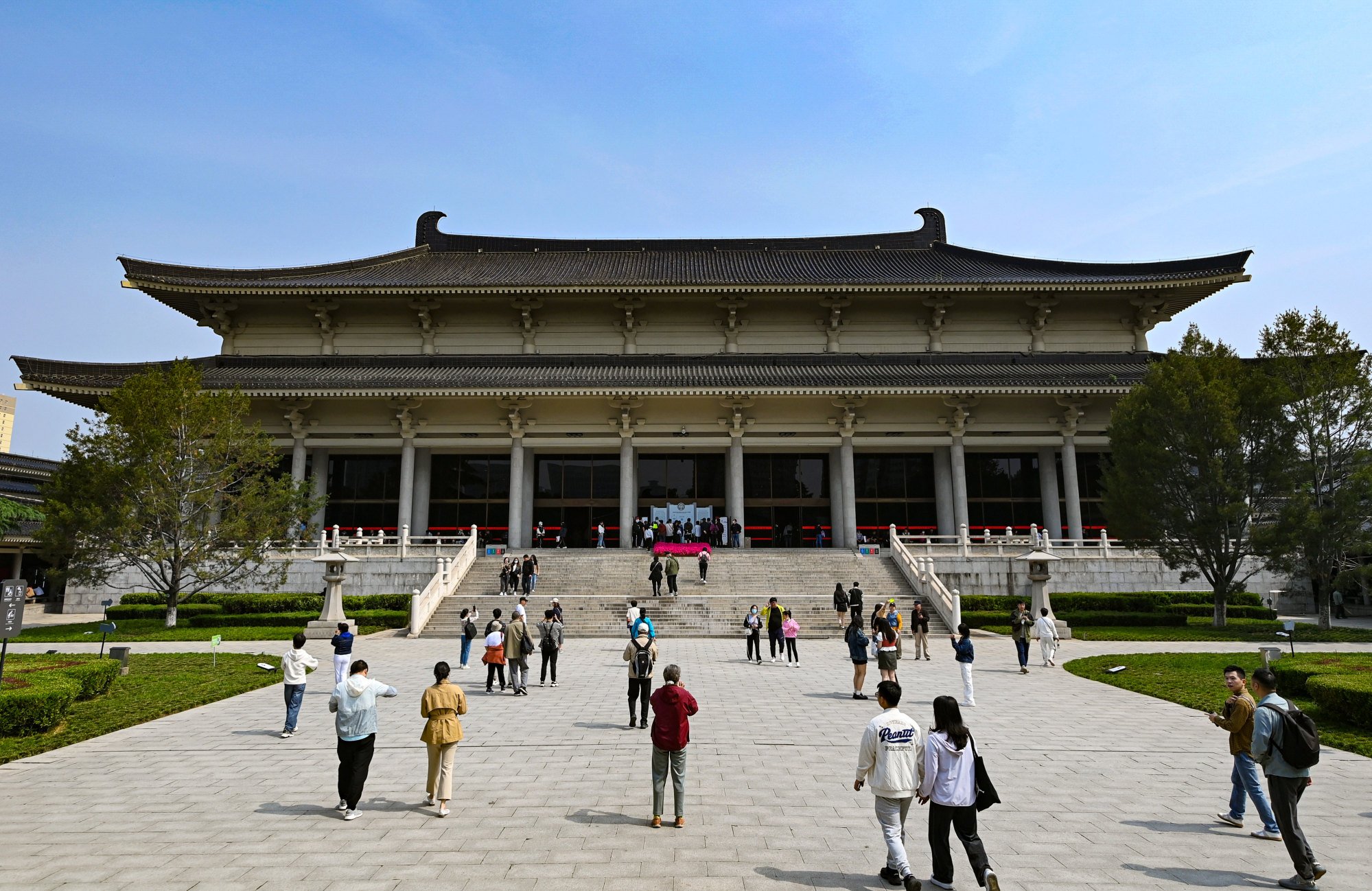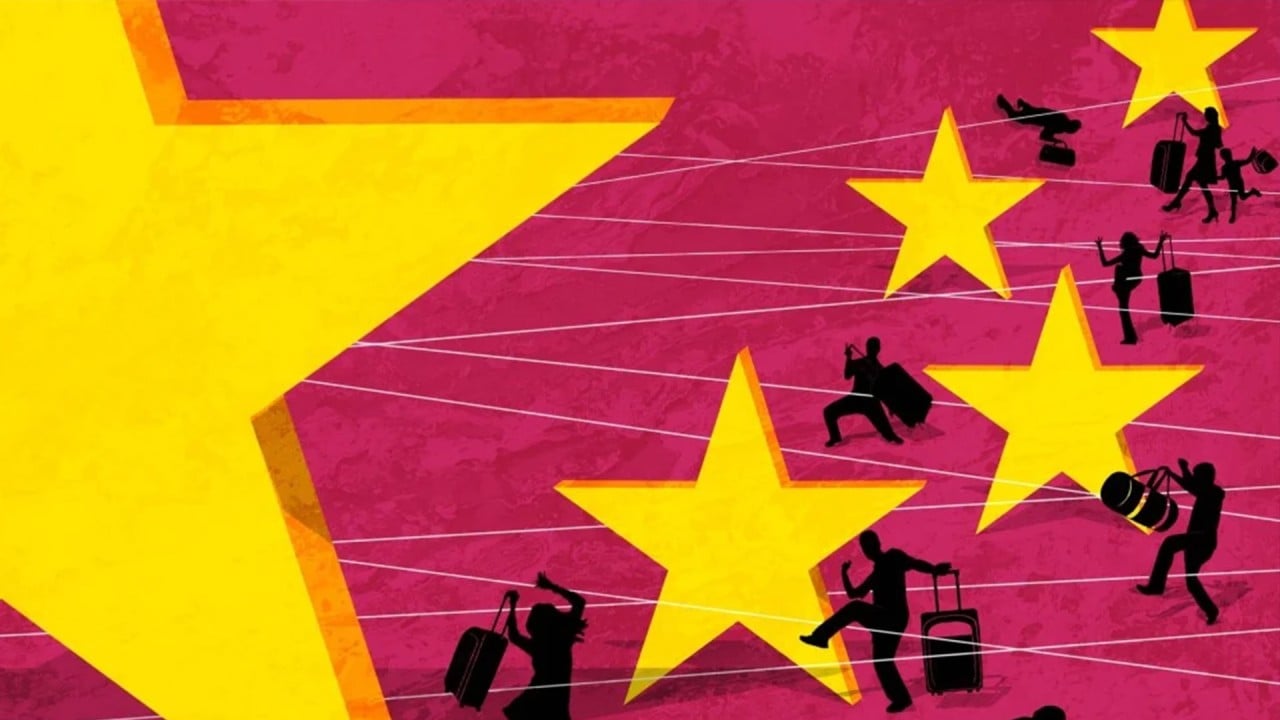Other popular tourist attractions, such as the Shaanxi History Museum in China’s ancient imperial capital, have had similar issues: The museum’s website encourages visitors to book through WeChat or a link to an online ticketing system, but the latter leads nowhere.
China’s technological revolution has made life easier for its people than ever before, but that convenience can also work against the Chinese people, and potentially against foreign tourists, and these problems are playing out in museums too.

01:49
Beijing Palace Museum expands exhibition center to triple exhibits
Beijing Palace Museum expands exhibition center to triple exhibits
Most of China’s major tourist attractions require advance booking through mini-programs, meaning visitors need a WeChat account and an understanding of how to use it to plan their trip, as well as basic Chinese language skills.
As tourism recovers, global hub Shanghai has been at the forefront of improving its service to foreign visitors. Online reservations at the Shanghai Museum are mandatory through the super app, which accepts passports and foreign permanent resident ID cards as valid documents, but the mini-program booking page is also available in English.
The neighboring Pudong Art Museum offers a semi-bilingual mini-program that non-native Chinese speakers can navigate with a little guesswork, and recently dropped the requirement for advance reservations. Similarly, the Power Station of Art, another landmark building in Huangpu, allows visitors to purchase tickets in person, but its WeChat interface is only in Chinese.
William Figueroa, an assistant professor of international relations at the University of Groningen in the Netherlands, who visited Beijing recently, said many of the existing prerequisites could be “daunting” and a “major obstacle” for short-term visitors.
While Figueroa was able to tour Tiananmen Square and the Palace Museum, where select Iranian and Saudi Arabian artifacts are on display, he wasn’t able to visit the Peking University campus, where high-demand slots open to the public only seven days in advance.
“Since [advance booking] “Because this is a new regulation, many travelers try to travel without knowing and end up coming home disappointed,” said Figueroa, who didn’t realize she had to buy her alma mater tickets a week before traveling. “WeChat is very convenient once you’ve set it up, but it’s notoriously difficult for foreigners for a variety of reasons.”
Moreover, in this highly digitalized world, logging in and signing up to websites, services, Wi-Fi and mobile applications revolves around text messages, most of which only work with Chinese phone numbers. For locals, everything is easy with verification codes, but for foreigners, it’s a challenge.
To get a phone number in China, users must visit a telecommunications store with a valid ID, and foreigners must bring a Chinese visa.
But Figueroa said there are workarounds for most problems and that Chinese people are generally “aware and sympathetic to the problems foreigners face in the country.” On this trip, he relied on the kindness of locals and the flexibility of staff.
“At least one site was unable to get me an appointment in time, so I booked online for a later date and then went in person early in the morning to explain the situation, and they were happy to expedite the appointment,” Figueroa said.
 Visitors to China’s most popular cultural sites, such as the Shaanxi History Museum in Xi’an, pictured, are often required to pre-book visit times on Chinese apps, creating a barrier for many non-Chinese tourists. Photo: Xinhua News Agency He said it was understandable that China’s tourism industry was prioritizing domestic travelers with foreign tourism yet to recover to pre-COVID levels.
Visitors to China’s most popular cultural sites, such as the Shaanxi History Museum in Xi’an, pictured, are often required to pre-book visit times on Chinese apps, creating a barrier for many non-Chinese tourists. Photo: Xinhua News Agency He said it was understandable that China’s tourism industry was prioritizing domestic travelers with foreign tourism yet to recover to pre-COVID levels.
According to Hong Kong Legislator Adrian Pedro Ho Kin-hong, there are unfounded rumors that China is restricting international tourists, but the reality is that China’s digital infrastructure has yet to catch up with the recovery of international tourism in the post-pandemic era.
“It is absolutely foolish to think that China does not welcome foreign tourists. That is nonsense. There is no country in the world that does not welcome tourists, [mechanisms] It’s not as friendly and you compare it to other places so I can see why people get frustrated.”
Ho suggested that tourists provide feedback to museums after their visit to identify areas for improvement, such as bilingual skills among staff, as large exhibitions often have interpreters present, he noted.
The Shanghai Museum offers daily guided tours as well as audio equipment in Chinese, English, French, Japanese, German, Korean, Spanish and Italian that provide guides of the museum’s permanent collection.
Figueroa said the new Forbidden City exhibit “will have sufficient English language [information] In order to make the exhibits easier for visitors to understand, English explanations are limited to the beginning and end of the exhibits, and detailed English explanations of individual exhibits are often lacking.
“The officials told me not to go to the new Communist Party museum because they were right, most of what’s there is written in Chinese and it’s not very interesting for foreigners,” Figueroa added.
Zoon Ahmed Khan, a researcher at the Beijing-based Center for China and Globalization, echoed Figueroa’s concerns, saying that while the quality of museum exhibits and bilingual signs has improved under Beijing’s guidance, many major tourist destinations lack staff and tour guides who can communicate in English.
“Language barriers exist everywhere, but a clear willingness to address them is even more important given the fierce regional competition for tourists,” Khan said, adding that if not addressed, it could undermine China’s soft power potential.
“For China, international tourism is above all an opportunity to promote its culture, history and economic development, as well as the dynamism and hospitality of Chinese society, and to present the real China, especially against biased media portrayals from the West.”
Museums aren’t the only places where foreigners are restricted from entering. Other conveniences that Chinese nationals enjoy in first-tier cities may not be as foreigner-friendly. Ticket scanners have been largely replaced by smart card readers, as most tickets must be purchased with a Chinese ID card. While locals can get around with just their ID, foreigners must go through the manual process.
Khan further argued that international visitors who are not used to providing a range of personal details for basic activities may be hesitant to visit.
“The practice of collecting detailed information about travelers, which has become widespread during the pandemic, is likely to cause some discomfort, especially among Westerners who have different standards for privacy protection,” Khan said, adding that such a perception goes against Beijing’s aim of promoting China as a relaxed and welcoming travel destination.
Similarly, digitizing payments has allowed China to improve service quality, safety standards and accessibility, but it can also seem “challenging” to visitors who haven’t had time to adapt to the Chinese way of doing things, Khan said.
“While China’s cashless society has benefits for local users, it also creates barriers for new entrants. Short-term travelers will naturally be frustrated when cash and other international currencies are not accepted by shops, hotels, restaurants, taxis and so on,” she said.
But China’s top-class infrastructure and visa-free agreements with other countries remain attractive, Khan added, and removing local barriers to tourism would bring geopolitical benefits “beyond economic benefits.”
Prioritizing domestic tourists has allowed hundreds of millions of Chinese to travel around the country for the first time and enjoy activities such as visiting museums, said Tingsin Chak, artistic director at the Beijing-based Tricontinental Social Research Institute.
“This ties in with the government’s post-COVID dual circulation policy of stimulating domestic consumption rather than relying primarily on exports to overseas markets to drive economic growth, which also includes promoting domestic tourism,” Mr Chuck said.
Chuck, who was born in Hong Kong and raised in Vancouver, said international tourists have the potential to become “unofficial cultural ambassadors” in their home countries and their requests need to be catered to.
“As we live in this era of a ‘new Cold War’ where disinformation targeting China is on the rise, it is important that any negative experiences tourists may have in China – often due to a lack of adequate or accessible infrastructure – do not inadvertently reinforce anti-China sentiment or trends,” she said.
Chuck said making a positive impression on tourists has an “impact that goes beyond the individual” and that authorities should help tourists see how their experience is improving.

13:33
Tourism troubles: Impediments to travel to China after pandemic
Tourism troubles: Impediments to travel to China after pandemic
“The government is aware to some extent of the barriers that discourage people from coming and traveling to China. For example, a series of policies regarding visas have been implemented, such as visa exemptions, visa-free passage and relaxed extension and renewal procedures,” Chuck said.
Ho’s New People’s Party in Hong Kong has also faced complaints from local residents about the widening technology gap between Hong Kong and mainland China, which has adopted cashless payments and an identification system that often requires a local phone number and locally issued documents.
He said mainland Chinese authorities were “working really hard” to address the concerns of travellers from Hong Kong and overseas.
“China cares about the experience of foreign tourists because it knows that impressions of a country are often determined by an individual’s experiences during the time they spend there, whether for leisure or work,” Ho said. “China wants to ensure that all tourists have a good experience in China.”
Ho said most avid travellers would be able and willing to adapt to the Chinese system, as well as other places with their own unique lifestyles and customs.
“Many people were happy with their overall experience in China. [in situations] In places where the cashless system was not very foreigner-friendly, manual services were offered.”

